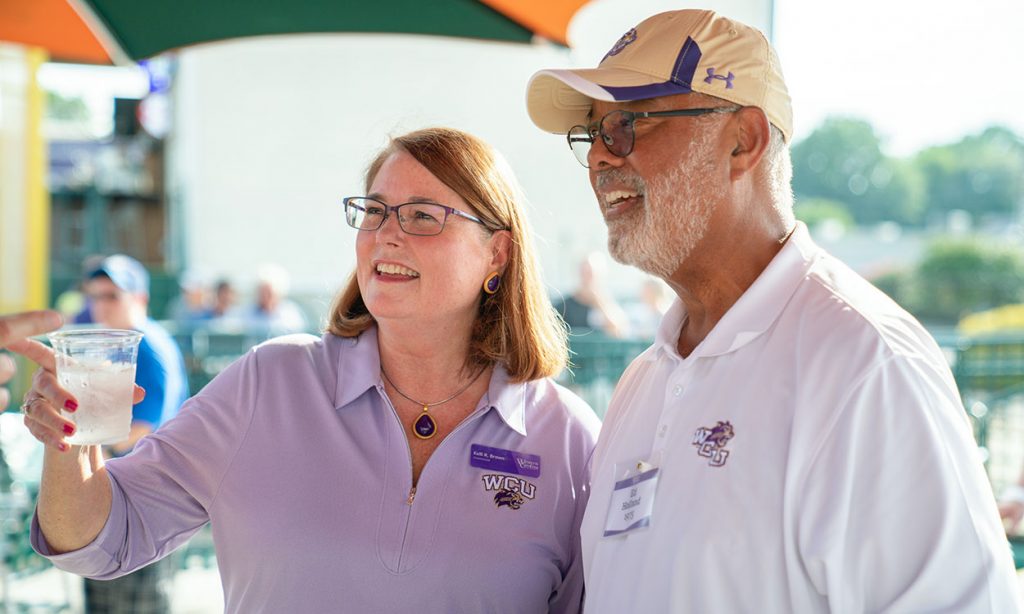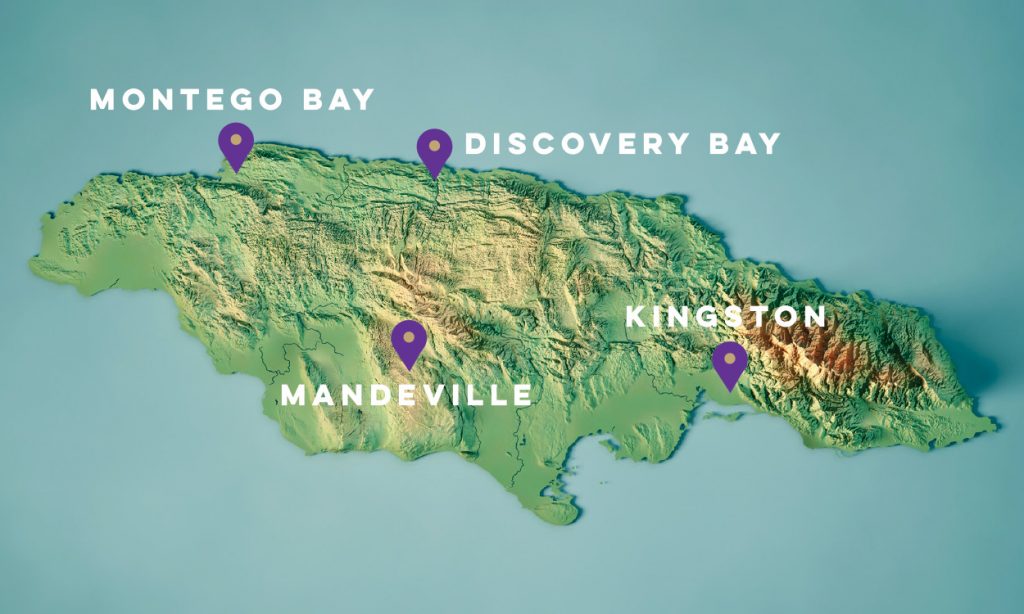Physical therapy group provides free care in Honduras while learning, gaining experience

WCU DPT students treat Honduran clients on the first day of a clinic.
Six students in the Doctor of Physical Therapy Program and two faculty members from Western Carolina University traveled during fall break to provide free physical therapy clinics in Honduras where residents have little or no access to health care.
The study abroad service-learning experience was led by Todd Watson, a professor of physical therapy, and accompanied by Lane Perry, the Center for Service Learning director, with WCU students Elizabeth Webber, Whitney Ward, Shannon Icenhour, Hannah Pollard, Emily Wilson and Kelsey Sivley. The group traveled to Taulabe, a village in a region known for its voluminous caves, and to Siguatepeque, a small city in the central mountains and base for ecotourism.
The students had prior firsthand clinical experience before departure, working with the Mountain Area Pro Bono Health Services Clinic, a free service for uninsured or under-insured local individuals, located on the first level of WCU’s Health and Human Sciences Building.
In Taulabe, they worked in a temporary clinic based in an elementary school, treating residents for neck and back pain typically related to working in strenuous manual labor, while in Siguatepeque they offered clinical services from the local hospital.
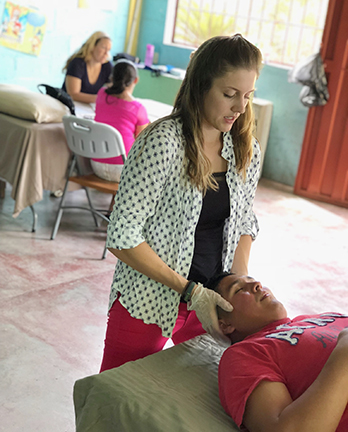
Shannon Icenhour assesses range of motion.
“I’ve been taking students enrolled in the course ‘Addressing Global Health Issues in Central America’ to rural Honduras since 2013,” said Watson. “Our students are challenged in their clinical reasoning abilities especially, as they are asked to meet the needs of their patients not just in a different setting, but also with different resources.
“For me, the rewards are multiple as not only do I get to help treat patients in Honduras and serve and improve the health of people with little to no resources,” he said. “I get to see my students experience the same joy at the same time seeing their clinical skills grow exponentially. I simply cannot put into words how proud these six students made me.”
The trip was originally to have taken place over winter break last January. However, with civil unrest following the Honduran presidential election and communication with the consulate office in San Pedro Sula confirming it would be unsafe to travel, the group had to postpone.
“The trip was not without challenges, but overall, everything ran pretty smoothly,” said Pollard, a DPT student from McDonough, Georgia, and quality improvement officer with Mountain Area Pro Bono Health Services Clinic. “We quickly learned each other’s strengths and were able to problem-solve and work as colleagues in a clinic. One of the most unique challenges was the language barrier. We were fortunate that a few people on the trip could communicate in Spanish pretty well, and they unquestionably served as ‘metaphorical bridges’ to many experiences. We also worked with fantastic interpreters who were invaluable in the clinic.
“One highlight for me was that I was able to utilize the Spanish I learned during my undergraduate studies. There were a few instances where I was able to treat a patient with minimal help from an interpreter, which was an incredibly rewarding experience that left me wanting to further my studies in Spanish. Cultural immersion is truly a catalyst to learning a language. I believe the more valuable lesson, though, is recognizing how much can be shared in spite of minimal verbal communication. You learn the value of smiles, laughter, demonstration and a lot of pointing. I feel deeply connected to so many with whom I never had a full conversation, though it feels as if we shared a myriad of stories.”
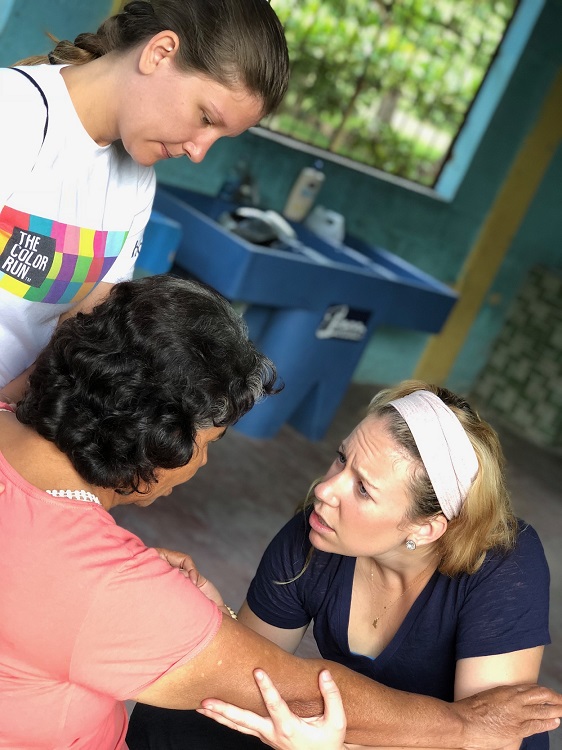
Hannah Pollard (standing) and Elizabeth Webber (kneeling) hear concerns.
Icenhour, a DPT student from Wake Forest and client advocate at the campus clinic, explained that the Honduras visit was different from clinical experiences in the U.S. “We did not have the luxury of several visits to assess the patient and change interventions as the patient progressed or didn’t progress,” she said. “In one short visit, we had to give the most important treatment and share advice for the patient’s condition.” She said individual needs will continue well after the mission trip was concluded.
“While I think mission work is great and I am very supportive of those that pursue it ― myself included ― it can easily become short-lived in its effects, if not provided with a way to make it sustainable,” Icenhour said. “I’ve learned that public education should be a huge aspect of mission work, in order to increase sustainability. Musculoskeletal prevention techniques such as proper body mechanics while lifting or performing physical labor or advice on a healthy lifestyle, can easily be information that is shared in the community. While educating my patients about this, I tried to accomplish this by having patients explain back to me what I had just taught them, with the hopes they will be able to carry it on and explain to others.”
WCU’s Doctorate of Physical Therapy Program originated in 2011 and has a national reputation for the students’ community service work.
“Frankly, it was inspiring to see these third-year doctor of physical therapy students applying the highest level of competence and expertise balanced with the highest level of care, compassion and concern,” said Perry. “It is not every day I get to see this level of care and competence align, and it was inspiring. Through their efforts, so many Honduran patients were served, many of whom were return patients receiving sustained care through the WCU program’s partnership with Fuente de Vida, a nonprofit aid organization.”
For more information, contact Watson at 828-227-2126 or twatson@wcu.edu.
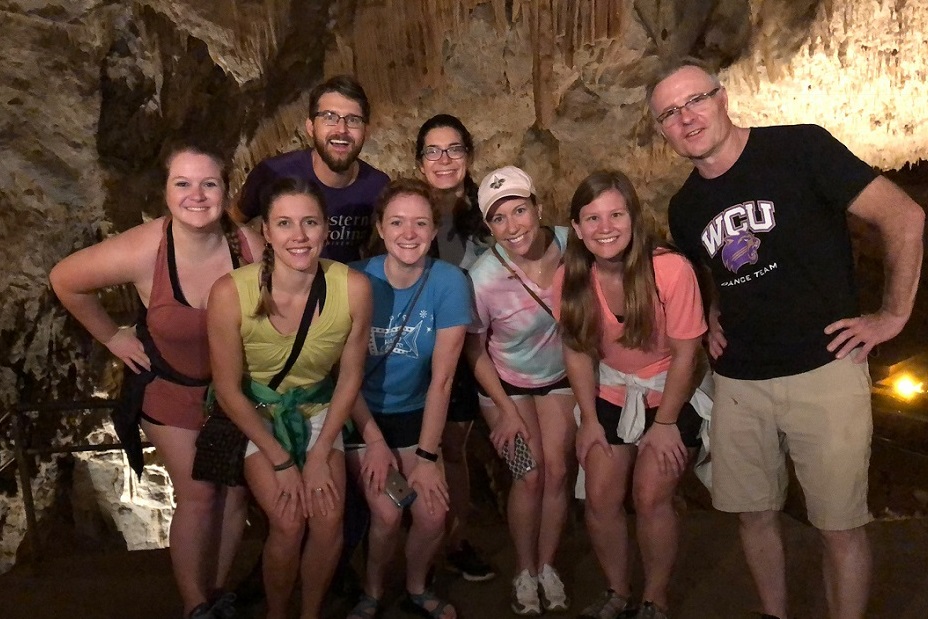
WCU team members exploring the caves of Cueves de Taulabe are (from left) Kelsey Sivley, Shannon Icenhour, Lane Perry, Whitney Ward, Emily Wilson, Elizabeth Webber, Hannah Pollard and Todd Watson.
